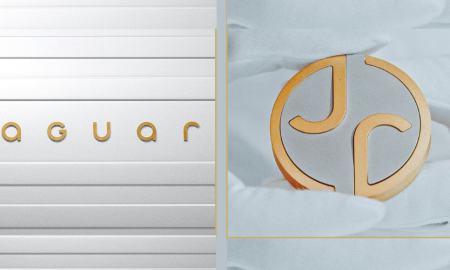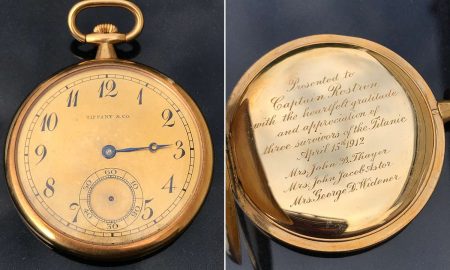
Why We Buy Things We Don’t Need

In today’s consumer-driven society, it’s not uncommon to find ourselves surrounded by various products and services that promise to make our lives better, more enjoyable, or even more successful. However, a closer look reveals a curious phenomenon – the tendency to buy things we don’t need.
From impulse purchases to the allure of the latest gadgets, understanding why we make these choices can offer valuable insights into the intricacies of human behavior and decision-making.
The Allure of Novelty
One of the driving factors behind our penchant for buying unnecessary items is the allure of novelty. Humans are wired to seek out new experiences and stimuli, and marketers are well aware of this innate tendency. Companies introduce new products regularly, using clever advertising and packaging to create a sense of excitement and urgency.

Tim Douglas/ Pexels | The desire for more positive experiences is itself a negative experience
The novelty factor triggers the release of dopamine, the “feel-good” neurotransmitter, in our brains, leading to feelings of pleasure and anticipation. As a result, we find ourselves drawn to products we’ve never seen before, even if they serve no practical purpose in our lives.
Emotional Purchases
Emotions play a significant role in influencing our buying decisions. Many times, we buy things we don’t need as a way to cope with stress, anxiety, or even boredom. This phenomenon is known as emotional shopping. A new outfit, jewelry, or the latest tech gadget can temporarily boost our mood when feeling down.
This emotional gratification can lead to a cycle of impulse buying, where we repeatedly seek out the same feeling by purchasing unnecessary items. Marketers capitalize on this vulnerability by linking their products to emotions, creating a connection long after the initial purchase.

Liza Summer/ Pexels | The things you own end up owning you
Social Influence and Status
Humans are inherently social creatures, and our need for social acceptance and status can drive us to buy things we don’t need. “Keeping up with the Joneses” illustrates how we often compare ourselves to others and strive to match their lifestyles.
Social media exacerbates this phenomenon, as we are constantly exposed to curated images of people living seemingly perfect lives surrounded by material possessions. As a result, we might find ourselves purchasing items not for their utility but to project a certain image or fit into a particular social group.
Instant Gratification
In an age of instant gratification, the impulse to buy things we don’t need is further fueled by the desire for immediate satisfaction. Online shopping and one-click purchases provide an effortless way to satisfy our desires in the blink of an eye.
The anticipation of waiting for a package to arrive can create a sense of excitement, even if the purchased item is ultimately unnecessary. This instant gratification overrides our ability to evaluate whether the thing serves any practical purpose in a critical way.

Andrea Piacquadio/ Pexels | The greatest danger in modern society is the multiplication of unnecessary necessities
Psychological Warfare
Marketers employ various psychological tactics to encourage us to buy things we don’t need. One of the most effective methods is creating a sense of scarcity. Limited-time offers, “while supplies last” labels, and exclusive deals trigger a fear of missing out, prompting us to make impulsive decisions.
Additionally, sales events like Black Friday or Cyber Monday play on our desire to save money, causing us to buy items we might not have considered otherwise. The perceived value of a bargain often overshadows the actual necessity of the purchase.
Cognitive Dissonance and Justification
After making an unnecessary purchase, individuals may experience cognitive dissonance – a psychological discomfort that arises when our actions conflict with our beliefs or values. To alleviate this discomfort, we tend to rationalize our decisions.
We might convince ourselves that the item will be useful in the future or that it’s a form of self-reward for hard work. This post-purchase rationalization helps us maintain a sense of consistency in our decision-making and minimizes feelings of regret.
More in Luxury Lifestyle
-
`
Best Things to Do in Peru for a Perfect Vacation
Peru offers a mesmerizing blend of history, culture, and natural beauty, making it a dream destination for travelers. Whether you’re fascinated...
December 15, 2024 -
`
Easy Steps to Break Old Habits and Refresh Your Daily Life
Breaking old habits is an essential part of personal growth. Habits form our routines, but when those habits become limiting or...
December 13, 2024 -
`
Best Peru Vacation Ideas for a Memorable Experience
When it comes to traveling to a destination filled with natural beauty, rich history, and vibrant culture, Peru should be on...
December 13, 2024 -
`
Home Interior Design Ideas From Bentley Bentayga EWB
The Bentley Bentayga is a statement of luxury, craftsmanship, and elegance. Known for its impeccable design, the Bentley Bentayga EWB (Extended Wheelbase)...
December 11, 2024 -
`
How Keira Knightley’s Boyfriend James Righton Stole Her Heart
Keira Knightley’s relationship with James Righton, her longtime boyfriend and now husband, showcases a captivating love story. Knightley, known for her...
December 10, 2024 -
`
10 Must-Watch Modern Disney TV Shows Based on Movies
Disney TV Shows have captured the hearts of audiences for decades by extending the worlds of their beloved films. These adaptations...
December 5, 2024 -
`
Jaguar Logo Redesign Marks a New Beginning for the Luxury Brand
The iconic Jaguar Logo has transformed the automaker positions itself for a dramatic relaunch. Jaguar aims to rebrand as a luxury...
December 5, 2024 -
`
The Top 10 Best Vacation Spots in the United States
In the quest for the best vacation spots in the United States, travelers seek destinations that promise not just a change...
April 6, 2024 -
`
The Fabulous Lives of Kourtney Kardashian’s Kids
Blending personal growth with public intrigue, the next generation of the Kardashian clan, especially Kourtney Kardashian’s kids, has garnered significant public...
March 30, 2024















You must be logged in to post a comment Login